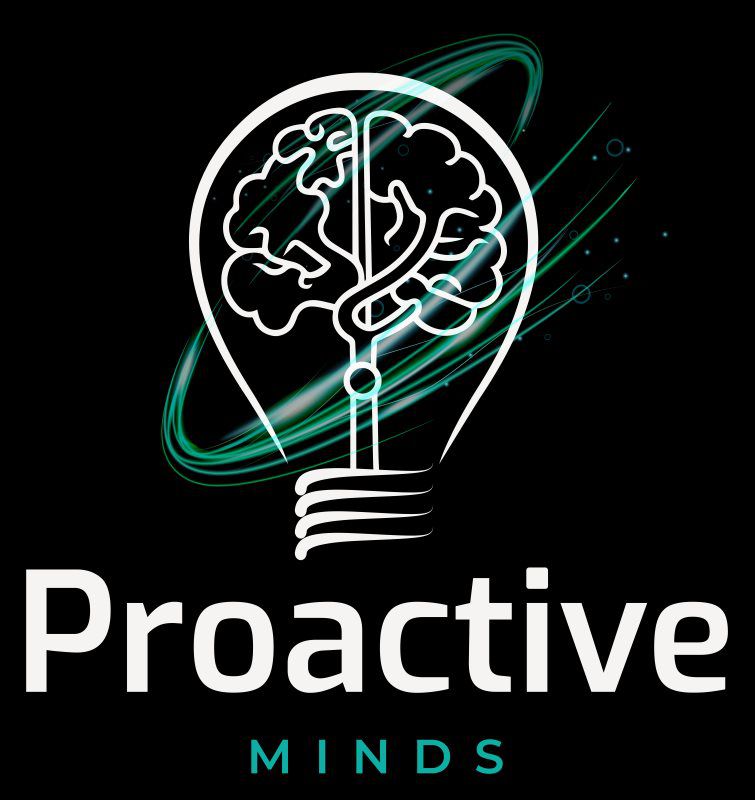Cognitive Behavioral Therapy
Cognitive behavioral therapy is a popular type of therapy used in the treatment of multiple mental health disorders. In a CBT session, the patient and therapist work together to uncover patterns of thinking and actions that interfere with the patient’s quality of life.
CBT and Psychotherapy
Psychotherapy (which is often called “therapy, talk therapy, or individual therapy”) is a form of medical treatment designed to help people understand and overcome a wide variety of mental and emotional challenges. Psychotherapy helps people identify triggers, build on their strengths, and develop appropriate coping mechanisms. Problems helped by psychotherapy include difficulties in coping with daily life; the impact of trauma, medical illness or loss, such as the death of a loved one; and specific mental disorders such as depression and anxiety. Psychotherapy may be used by itself or in combination with medication or other therapies.
There are several different types of psychotherapy, with some types working better for certain problems or issues. In individual therapy, a patient speaks with a therapist one-on-one. This is different from group therapy, couple’s, or family therapy, where patients speak with a therapist and each other. Therapists may use different styles and methods of psychotherapy depending on their expertise and the patient’s needs.
The History of CBT
CBT was developed by Dr. Aaron T. Beck in the 1960s as a response to what he saw as deficits in psychotherapy when it came to treating depression. Dr. Beck noted that depressive patients had a tendency towards automatic thinking that focused on negative traits they had come to believe about themselves. Dr. Beck worked to develop techniques that would help these patients transform this negative thinking into positive thinking.
Many mental health researchers now study the applications of CBT and therapists use this form of psychotherapy in countless offices across the country. CBT has not only transformed therapy, it has also transformed the lives of many patients with mood disorders.
Getting to Know Cognitive Behavioral Therapy
Cognitive behavioral therapy is a popular type of therapy used in the treatment of multiple mental health disorders. In a CBT session, the patient and therapist work together to uncover patterns of thinking and actions that interfere with the patient’s quality of life. The patient can then learn ways to stop these destructive thoughts and actions.
The Benefits of Psychotherapy
Psychotherapy can help you understand the behaviors, emotions, and ideas that are holding you back, and learn how to modify them. Identify the events or problems that contribute to your discomfort, and which aspects of those problems you may be able to resolve. Learn coping techniques and problem-solving skills so that you can regain a sense of control in your life.
Online Psychotherapy at Proactive Minds
Online therapy, also known as telehealth or teletherapy, is a secure and effective way to connect with a therapist. In these sessions, patients talk with their therapists through live video. Patients can log on to the calls from anywhere with a secure internet connection. When getting ready for a telehealth appointment, we recommend finding an area that is private and where you will feel comfortable speaking.
Clinical studies have shown that video-based online therapy is as effective as its in-person counterpart. In fact, online therapy is more effective for some patients because they are able to attend more regularly.
Having our patients feel comfortable in their therapy sessions is of the utmost importance, which is why we offer both telehealth and in-person appointment settings.
Say Yes To Behavioral Care
We work with various skilled specialists at Proactive Minds who have real-world experience managing patients’ emotional well-being issues through psychotherapy.
What You Should Expect From Your Therapist
A therapist’s role is to offer you insights into your experiences, advice on how to handle your issues, and evidence-based treatment for your emotional or mental health conditions. But above all, you should expect a therapeutic environment that is compassionate, safe, and focused on helping you feel better.
How Does Our Therapy Work?
1. Respond to a few simple questions.
2. Get paired with the therapists you want.
3. Choose a therapy plan that is affordable for you.
4. Begin your therapy, to start your journey to living a better life.
Disorders Treated with CBT
Originally developed to treat depression, CBT is now used to address a wide range of mood disorders. Psychotherapists adjust the technique depending on the nature of a patient’s mental health problems, incorporating everything from deep breathing to journaling.
The following are some of the mental health disorders that can be addressed with CBT. If you are interested in pursuing CBT for one of these issues, contact us to consult with a mental health professional.
Depression
CBT helps individuals identify and change negative thought patterns, promoting healthier thinking and coping strategies.
Anxiety Disorders
CBT targets irrational fears and anxious thoughts, providing practical tools to manage anxiety and face feared situations.
Obsessive-Compulsive Disorder (OCD)
CBT helps individuals challenge and modify obsessive thought patterns and compulsive behaviors, promoting healthier responses.
Post-Traumatic Stress Disorder (PTSD)
CBT addresses trauma-related thoughts and behaviors, assisting individuals in processing and managing traumatic memories.
Eating Disorders
CBT addresses distorted thoughts and behaviors related to food and body image, fostering a healthier relationship with eating and body perception.
Insomnia
CBT for insomnia targets disruptive sleep patterns and thoughts, promoting better sleep hygiene and more restful sleep.
Substance Use Disorders
CBT helps individuals identify and change the thought patterns and behaviors contributing to substance use, supporting recovery.
Phobias
CBT assists in confronting and changing irrational fears, allowing individuals to face and manage phobic stimuli more effectively.
Bipolar Disorder
CBT helps individuals manage mood swings by identifying and addressing negative thought patterns and developing coping strategies.
Schizophrenia
As part of a comprehensive treatment plan, CBT may help individuals manage distressing symptoms and improve daily functioning through addressing thought patterns and behaviors.
Proactive Minds Makes A Difference
Our therapists work closely with patients through virtual counseling. Their analysis aims to reduce symptoms of mental health disorders and to develop a solution, such as a mental health treatment plan, that supports their mental health.
Listen to patients without passing judgment
Examine mental health challenges from the past and current and analyze for treatment methodologies.
Devising strategies to prevent worse situations
Help clients self-recognize mental health conditions and educate them to better understand themselves.
Teach our patients cognitive, behavioral, and communication skills to promote a better way of living.
Ability to guide our patients who are going through breakups, divorce, abuse, sexual assault, grief, or trauma
Teaching self-soothe abilities, techniques and strategies
Help improve our patient's self-confidence by teaching strategies to embrace self-love.
Counseling and helping clients by involving their families
Help patients reduce the disruptions of mental health symptoms
Offer referrals to specialists in case of more advanced scenarios where deemed appropriate through analysis.
Diagnosing mental health illness after thorough study
CBT Applications
CBT is evidence-based and has been shown to be effective for various mental health conditions, including depression, anxiety disorders, post-traumatic stress disorder (PTSD), and more. Its structured and goal-oriented nature makes it a practical and adaptable approach for individuals seeking positive changes in their thoughts, emotions, and behaviors.
CBT & Depression
Decades after the first applications of CBT to treat depression, CBT continues to help those with this mental health disorder. Analysis of CBT has shown that it can be as effective as antidepressants in ameliorating the symptoms of depression. It can also prevent patients from experiencing relapses. CBT has been demonstrated as effective in treating bipolar disorder, as well.
ADHD and CBT
Not every parent wants to turn to medication when their child receives a diagnosis of ADHD. CBT can serve as a viable alternative. While research is still evolving, CBT is a promising treatment for children and teens with ADHD.
Treating OCD with CBT
OCD, or Obsessive Compulsive Disorder, is characterized by fixated and automatic thinking. As such, CBT is a natural fit for treating this disorder. Mental health professionals often combine CBT with exposure therapy to help those with OCD.
CBT for Trauma
Traumatic events can lead to PTSD, mood disorders, or extreme grief in some patients. CBT has been shown to help these patients, as well. CBT helps patients repattern their thinking around traumatic events, and it can be helpful in treating victims of emotional, physical, or sexual abuse. Research so far in this field suggests that CBT may be the most effective intervention for patients with disorders related to trauma.
CBT & Anxiety
CBT is also effective in addressing a range of anxiety issues, including panic attacks, GAD, and phobias. Some mental health professionals view CBT as the gold standard, in fact, when it comes to treating anxiety.
CBT & Insomnia
Many people lose countless hours of sleep due to obsessive thinking. For this reason, CBT can be a good option for those dealing with insomnia. While it is not an immediate solution for those with insomnia, it does help patients develop long-term tools to deal with disordered sleep. Sleep aids can help in the short term as patients learn to incorporate CBT techniques into their lives.
How CBT Can Promote Better Ways Of Thinking
Cognitive-Behavioral Therapy (CBT) promotes better ways of thinking by addressing and modifying distorted or negative thought patterns. By systematically addressing and reshaping thought patterns through these techniques, CBT helps individuals cultivate a healthier and more balanced way of thinking. This, in turn, contributes to improved emotional well-being, enhanced problem-solving skills, and a more positive overall outlook on life.
By systematically addressing and reshaping thought patterns through these techniques, CBT helps individuals cultivate a healthier and more balanced way of thinking. This, in turn, contributes to improved emotional well-being, enhanced problem-solving skills, and a more positive overall outlook on life.
Identifying Negative Thoughts
CBT encourages individuals to become aware of their automatic negative thoughts that contribute to distress. This initial step involves recognizing and understanding the specific thoughts that impact emotions.
Challenging Distorted Thoughts
Once identified, CBT guides individuals to challenge and question the accuracy of distorted or irrational thoughts. Therapists work with clients to explore evidence for and against these thoughts, fostering a more balanced perspective.
Replacing Negative with Rational Thoughts
Through CBT, individuals learn to replace negative thoughts with more rational and realistic ones. This process involves consciously changing habitual thought patterns to create a healthier cognitive framework.
Examining Core Beliefs
CBT delves into core beliefs and underlying assumptions that influence thoughts. By examining and challenging these deeply ingrained beliefs, individuals can reshape their cognitive framework for more positive and adaptive thinking.
Behavioral Experiments
CBT often includes behavioral experiments to test the validity of negative thoughts. By engaging in activities that challenge these thoughts, individuals gather evidence to support more constructive and accurate beliefs.
Mindfulness Techniques
Incorporating mindfulness techniques in CBT helps individuals observe their thoughts without immediate judgment. This mindfulness fosters a non-reactive awareness, allowing for a more objective and less emotionally charged perspective.
Goal Setting and Positive Visualization
CBT involves setting realistic and achievable goals, promoting a positive outlook on future outcomes. Visualizing success and positive scenarios contributes to a more optimistic mindset.
Graded Exposure (for Anxiety)
In cases of anxiety disorders, CBT utilizes graded exposure to gradually confront and overcome fear-inducing situations. This exposure helps individuals reevaluate and modify anxiety-provoking thoughts.
Self-Monitoring
CBT often includes self-monitoring of thoughts, emotions, and behaviors. This self-awareness enables individuals to identify patterns, triggers, and areas for improvement in their thought processes.
Cognitive Restructuring
The process of cognitive restructuring involves actively changing negative thought patterns by replacing them with more adaptive and constructive alternatives. This restructuring contributes to a more positive and empowering mindset.



